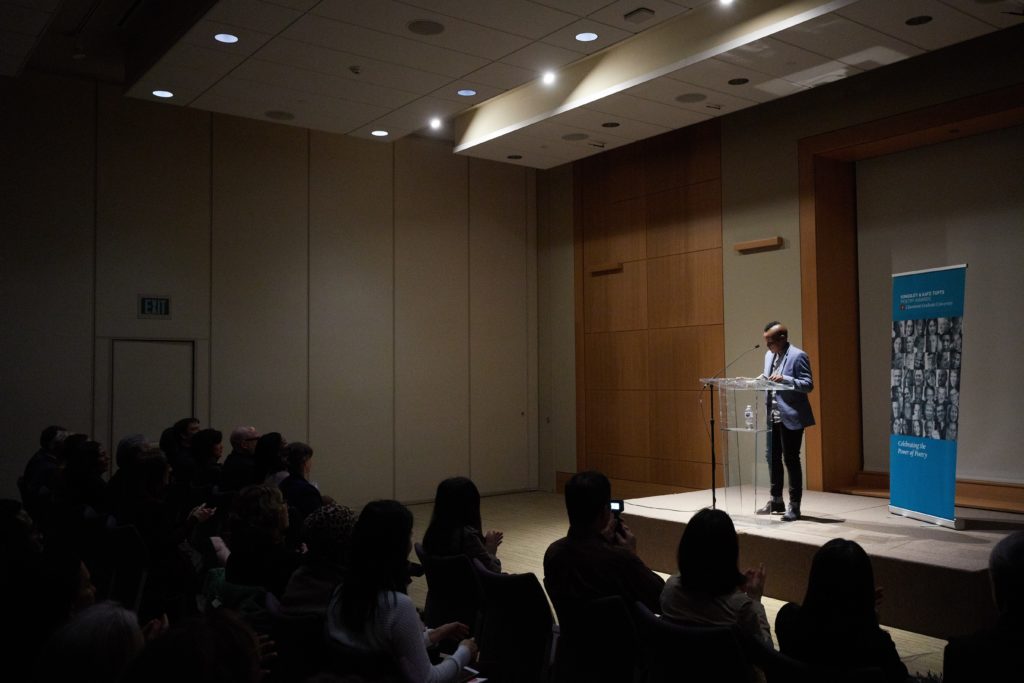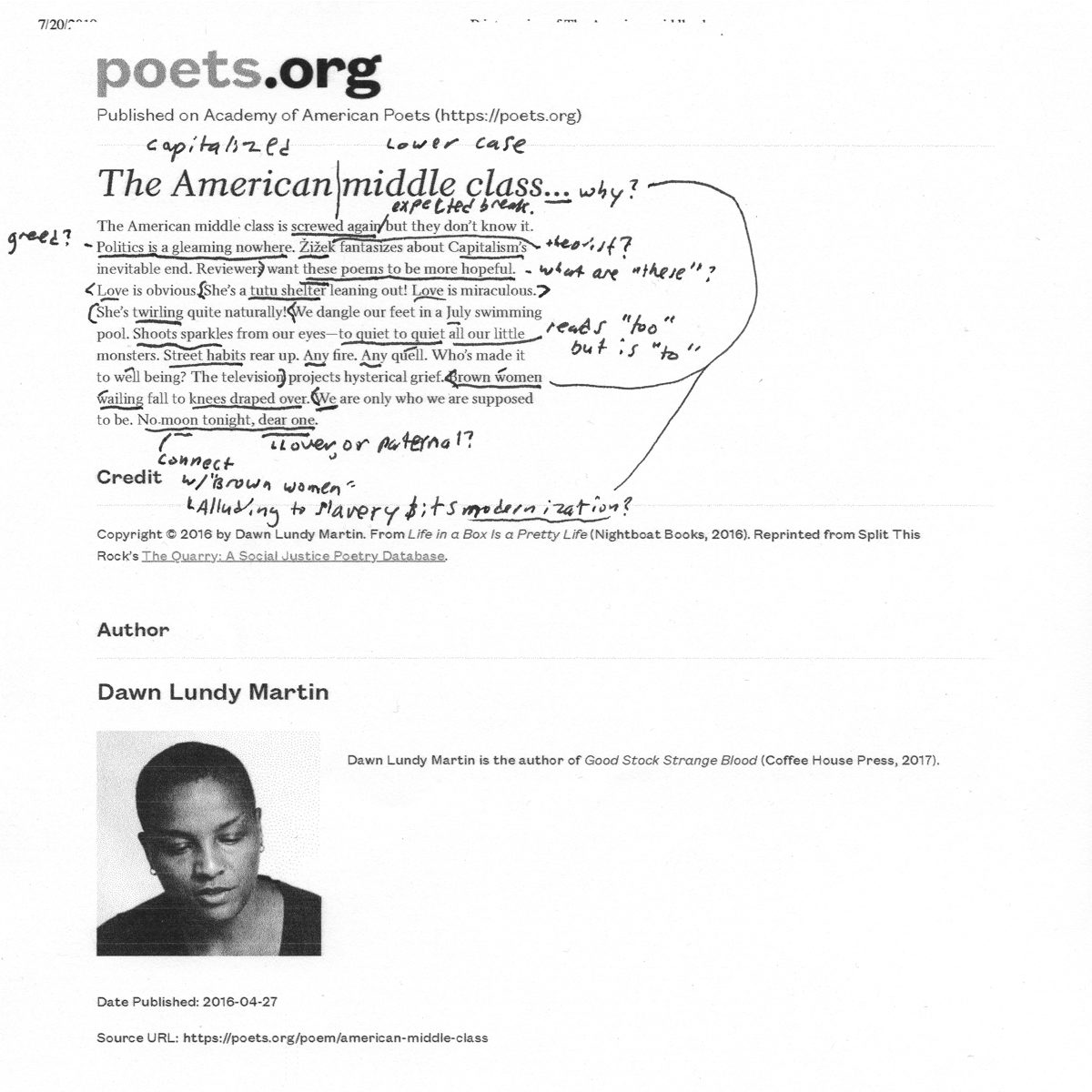Reading Dawn Lundy Martin’s Poem – The American middle class…

I feel the need to start out with an invisible elephant in the room. I hadn’t read Dawn Lundy Martin before writing this piece. My only actual experience with her poetry was on two occasions: first, at her reading at the CGU President’s House Dinner for the Tufts Awards, and second at the 2019 Kingsley & Kate Tufts Awards Reading and Reception at the Huntington Library, both of which were oral renditions of her poems, rather than the written form that I am so used to.
That empty space in my knowledge felt like the perfect opportunity to present a topic that I have been alluding to in my past posts: how readers respond to the unknown. So. What did I do? I typed “Dawn Lundy Martin” into Google, clicked on the Poets.org link, and picked out one that snagged my attention. I will be discussing The American middle class… and my reaction to it.

Sorry about the horse, Billy. My notes are a little all over the place, but that is also the gut reaction I am having. This poem is a sort that leaves me in silent awe. There is too much to talk about, but the divisions within the poem are really compelling and I feel the need to start there. The use of ellipsis in the title caused me to read the first line in segments, just as I read the title itself (which I had divided due to the capitalization). My attention was focused on the divide between “is screwed again” and “but they don’t know it.” When I drew that little slash for the expected break, I was thinking to myself “yeah, think of all the people unaware of what going on.”
What followed, for me, was realizing I was completely lost. What does “Politics is a gleaming nowhere” mean? Who is Zizek? And “these” reviewers (well, that one I’ve felt once, when I submitted a poem and the editor replied that he was disappointed that the poem ended on a sad note, even though it was, to me, the real end to it)? The contradiction between “obvious love” and the usage of a pronoun, not a name? What street habits? What are tutu shelters? WHAT IS HAPPENING???
And then we hit “brown women” and I had a moment of pause.
‘cause to me, the middle class was (is?) my family. My white family. In my white neighborhood. And I felt this sickening feeling of “I am but I am not” rise up from my stomach because that’s not what the “middle class” is in this poem, just in the childhood of my memory. And at this point, I took a break from my writing and had to sit and think because this exercise about immediate reactions derailed into a day lost in thought.
Dawn Lundy Martin withholds color until the last three lines, which becomes the focal point of the turn for the poem. And it is a hard turn, like the twist at the end of The Sixth Sense, where the American “they,” the “television,” the “who,” and the “reviewers” all become part of an entity of oppression, while the miracle of love becomes the embodiment of hope in a modernized underground railroad—and, at the end, the power of love is contrasted with hope (the moon) falling into darkness.
Anyways, that’s my initial reading and reaction of Dawn Lundy Martin’s poem. It has been a pleasant reminder that a poem can captivate someone more in 10 lines than other mediums can do in 100 minutes. I will be picking up a copy of Good Stock Strange Blood (the 2019 Kingsley Tufts award winner), and I HIGHLY recommend you do too.
– Cassady O’Reilly-Hahn
A Moment of Zen:
Another Dog
He’s in a leash too,
leading his person down town.
Maybe I’ll say hi.

Share